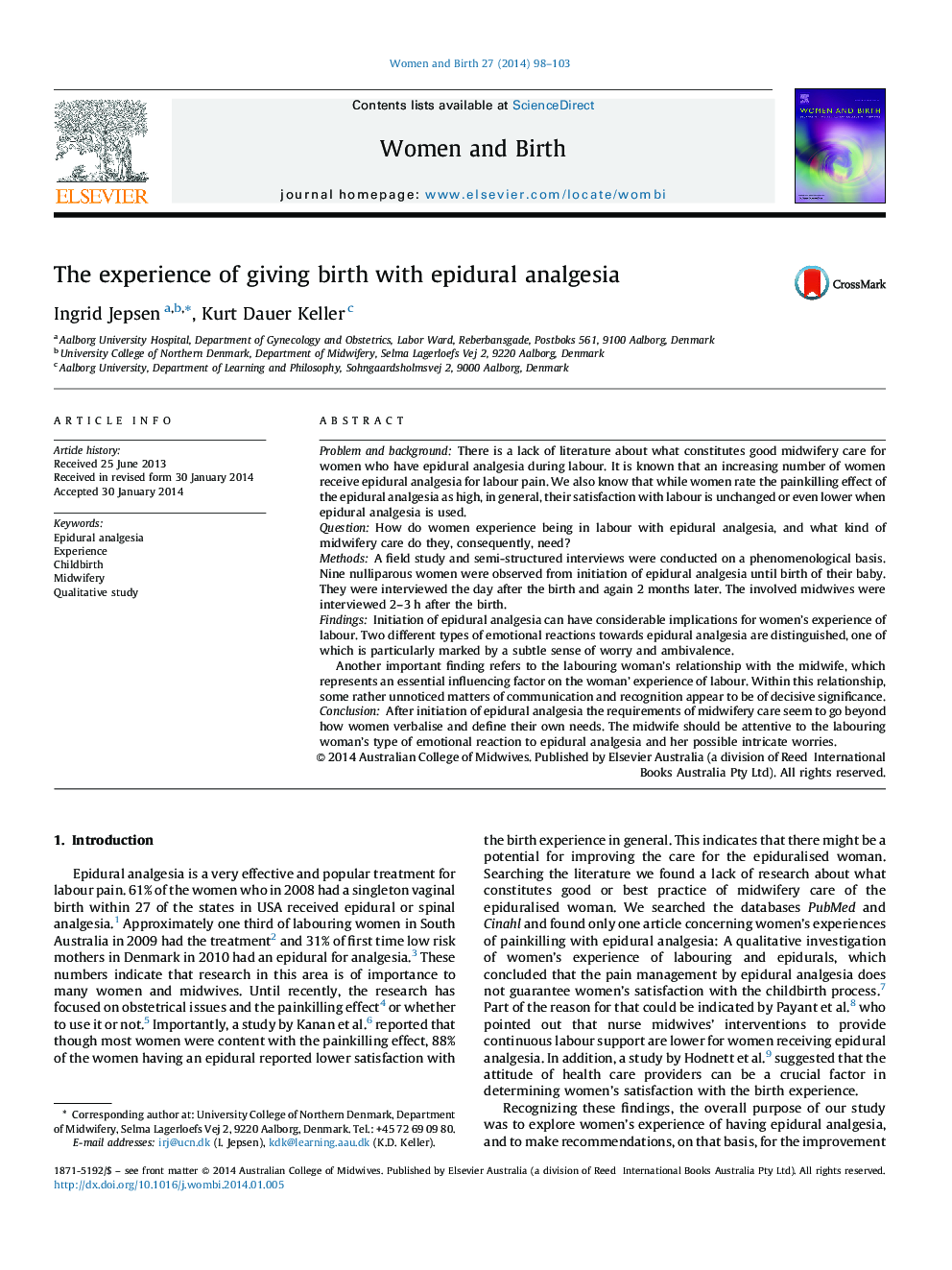| Article ID | Journal | Published Year | Pages | File Type |
|---|---|---|---|---|
| 2636835 | Women and Birth | 2014 | 6 Pages |
Problem and backgroundThere is a lack of literature about what constitutes good midwifery care for women who have epidural analgesia during labour. It is known that an increasing number of women receive epidural analgesia for labour pain. We also know that while women rate the painkilling effect of the epidural analgesia as high, in general, their satisfaction with labour is unchanged or even lower when epidural analgesia is used.QuestionHow do women experience being in labour with epidural analgesia, and what kind of midwifery care do they, consequently, need?MethodsA field study and semi-structured interviews were conducted on a phenomenological basis. Nine nulliparous women were observed from initiation of epidural analgesia until birth of their baby. They were interviewed the day after the birth and again 2 months later. The involved midwives were interviewed 2–3 h after the birth.FindingsInitiation of epidural analgesia can have considerable implications for women's experience of labour. Two different types of emotional reactions towards epidural analgesia are distinguished, one of which is particularly marked by a subtle sense of worry and ambivalence.Another important finding refers to the labouring woman's relationship with the midwife, which represents an essential influencing factor on the woman’ experience of labour. Within this relationship, some rather unnoticed matters of communication and recognition appear to be of decisive significance.ConclusionAfter initiation of epidural analgesia the requirements of midwifery care seem to go beyond how women verbalise and define their own needs. The midwife should be attentive to the labouring woman's type of emotional reaction to epidural analgesia and her possible intricate worries.
